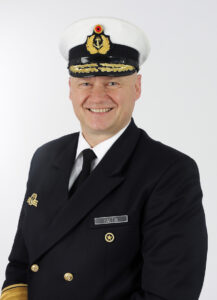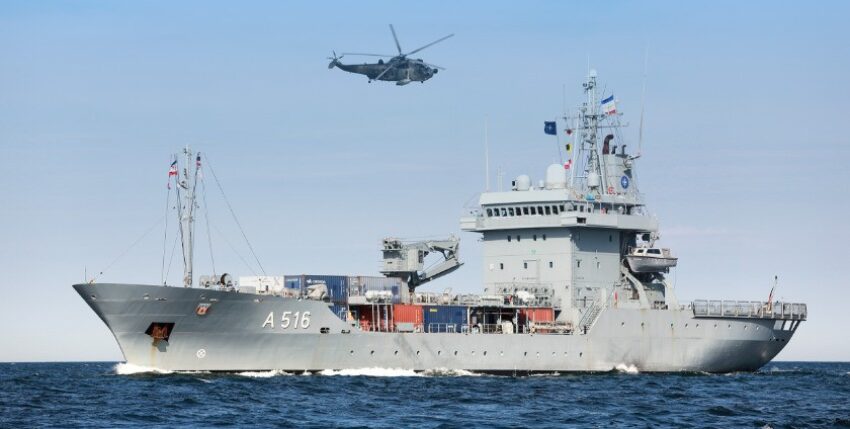The turnaround proclaimed by Chancellor Olaf Scholz not only brings with it a lot of money, but also a return to national and alliance defence. What consequences does this have for Flotilla 1? An interview with its commander, Flotilla Admiral Henning Faltin.
Mr Admiral, where is Flotilla 1 today?
The caesura of the Russian war of aggression against Ukraine heralded a turning point in security policy, which presents our armed forces with new challenges. As a consequence, it is essential to concentrate on the core mission and, to a certain extent, demands a return to the core mission of national and alliance defence. Operational Flotilla 1, with its operational focus on the northern flank and Baltic Sea, has an important role to play here. Controlling this operational area by military means, denying an opponent deployment and thus preventing his deployment in the area is the essential mission and obligation of my flotilla's organisation. In order to protect the northern flank and the Baltic Sea as a transport and trade route in the sense of free sea routes and free trade with a view to the stability of our prosperity and our supply, a solid deterrent potential is required. With its long and indented coastline, the operational area of the northern flank and Baltic Sea is a challenge that places very high demands on the ability to deploy and utilise naval forces.

As always, everything is never good when it comes to our capabilities, but not everything is bad either. It is good that we have been able to maintain our broad-based capabilities over the past decades despite a quantitative reduction in the size of the fleet. With the 212 class submarines and the 130 corvettes, we also have modern and impressive weapon systems. The renewal of the platforms in the area of support units, minehunting units and fleet service boats has been initiated. With the arrival of these units, it will then be necessary to operationalise these capabilities and build on existing skills. In addition, the naval battalion and the naval special forces command must be designed to be compatible in order to utilise the capabilities at the interface between sea and land in a highly effective manner. The ability to operate in narrow and shallow coastal waters must always be considered in co-operation and close cooperation with the allied littoral states and can be described as very solid.
Access?
- Access to all articles from the marineforum magazine
- Easy payment via PayPal, direct debit or credit card
- The subscription can be cancelled at any time free of charge
- Free of charge for MOV members










